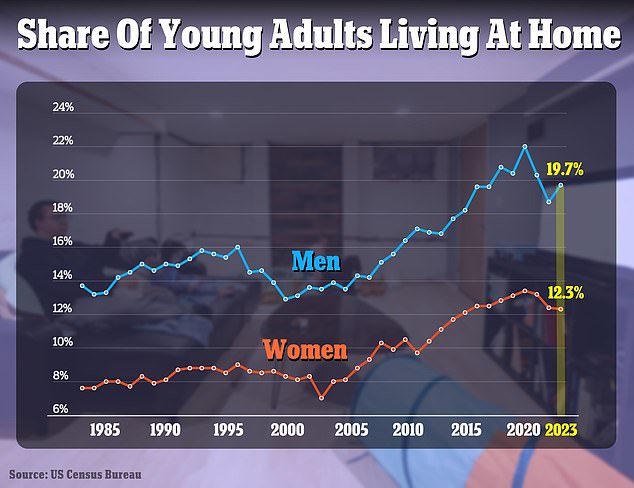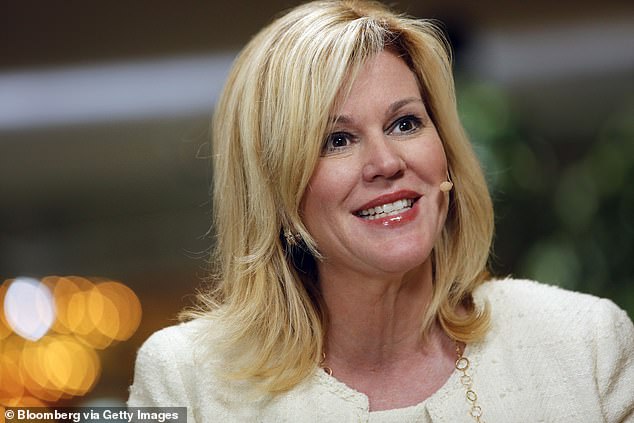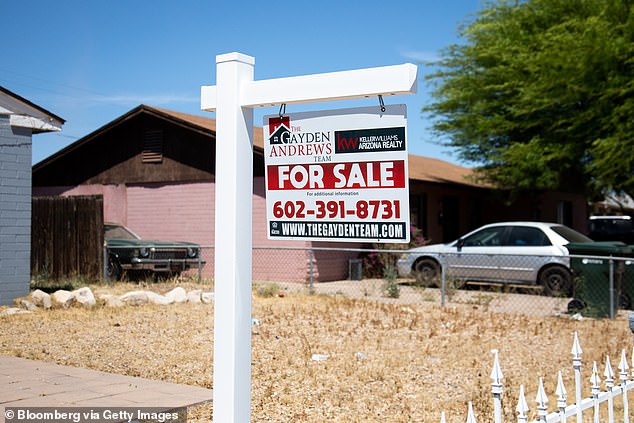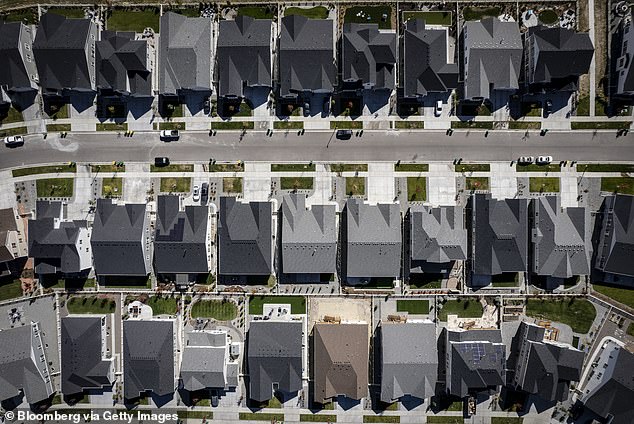‘Oracle of Wall Street’ who predicted 2008 financial crash says rise in young, sexless men living with their parents will cause house prices to plunge 30%
A financial analyst nicknamed the “Oracle of Wall Street” has said a “growing crisis of the young American male” will cause house prices to fall by as much as 30 percent.
Meredith Whitney, who earned the title after predicting the 2007-2008 financial crisis, suggested that young men increasingly living with their parents and uninterested in starting families will dramatically reduce housing demand.
The trend of men refusing to settle down means that more and more women remain single into later life, leaving them without an income or needing large family homes.
But it comes as the baby boomers are starting to downsize, meaning there will be a surplus of available family homes. Much of the increase in property values over the past decade has been due to high demand and low supply; a phenomenon that Whitney believes is turning around.
To explain the increase in men living at home, she pointed to the increasing prevalence of video games, which began in the mid-2000s.
Meredith Whitney, also known as the ‘Oracle of Wall Street’, has predicted that house prices will fall as men become less interested in starting families

In recent decades, the number of young men living in their parental homes has increased. (Young adults are defined as people between the ages of 25 and 34)
“You feel like you’re with other people, but you’re actually home alone, and that created a big gap in the sociability of young men,” she told DailyMail.com.
Whitney cited U.S. Census Bureau data showing that before the financial crisis, about 13 percent of men between the ages of 25 and 34 lived at home.
That rose to as much as 22 percent during the pandemic, but even after it fell again, it was still close to 20 percent in 2023. Only in the past ten years had that percentage risen above 16 percent.
The data also shows that young women are consistently twice as likely to leave their parents’ home. Last year only 12.3 percent were at home.
The figures coincide with a decline in romantic relationships among young men. A 2023 Pew Research survey found that 63 percent of men under 30 describe themselves as single.
Experts have attributed the figures to a confluence of factors such as increased porn consumption, the rise of hook-up apps and the legacy of lockdown during the pandemic.
“The rate at which young men are living at home versus young women at home is about twice as high. I tied this all back to the launch of the Xbox, Wii and PlayStation in the early 2000s,” she said.
“The biggest driver of house prices historically has been household formation,” Whitney told DailyMail.com. “Family formation today is the lowest in 160 years.”
And family formation, she said, is determined by the “five Ds”: “diamonds, diapers, divorce, debt and death.”
“Without at least the first two D’s, there is no reason to buy a house,” she said.
Whitney told me earlier Fortune the decrease can be up to 30 percent.

Whitney attributed the increasing number of men living at home to the rise of video games, which began in the mid-2000s
Single women are increasingly buying their own home. Female buyers alone make up 19 percent of U.S. homebuyers, according to recent figures — nearly double that of single men facts of the National Association of Real Estate Agents.
This is in stark contrast to forty years ago, when the share of single women and men who bought a house was about the same: 11 percent and 10 percent respectively.
As of 2023, the share of single men buying property has remained stable at 10 percent. According to the NAR, the share of recent buyers who are married has also fallen to 59 percent.
In 1981, when the organization began analyzing the profiles of buyers and sellers, married couples made up 73 percent of homeowners.
However, according to Whitney, single women will not be able to absorb the full supply of large family homes.
“I don’t see single women buying a four-bedroom, three-bathroom house,” she said.
And encouraging older people to downsize to smaller homes leads to rising costs, Whitney said.
Despite the inconvenience of moving at an older age, onerous costs such as household expenses, property taxes, insurance, utilities, homeowners’ association fees and mortgages can leave them with little choice.

Single women are buying an increasing share of homes, but Whitney doubts they will be able to absorb all the demand, which will push prices down. Pictured is a “for sale” sign outside a home in Phoenix, Arizona

Whether aging baby boomers will leave their homes and flood the market in the coming years is uncertain
Although the youth who want to buy homes are eagerly waiting for baby boomers and older homeowners to leave their homes, the question of whether that will happen is up for debate.
A Redfin survey in February found that of more than 800 Americans age 60 and older, about 71 percent said they would continue living in their current home.
A separate study by government-backed lender Freddie Mac downplayed the significance of the “silver tsunami” – a metaphor sometimes used to describe the aging of the population.
“Some have warned of a ‘silver tsunami’ as aging boomers look to sell their homes, flooding the market with inventory,” the report said.
“But as this analysis shows, the tsunami is more like a tidal wave, bringing a gradual outbreak that will be largely offset by new entrants.”
